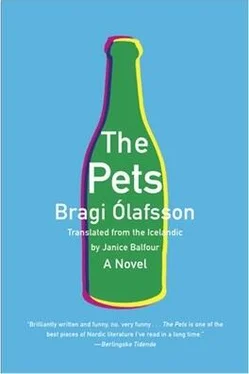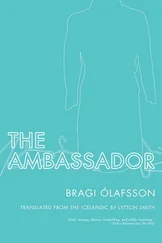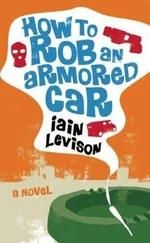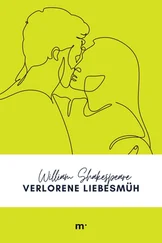Bragi Ólafsson - Pets
Здесь есть возможность читать онлайн «Bragi Ólafsson - Pets» весь текст электронной книги совершенно бесплатно (целиком полную версию без сокращений). В некоторых случаях можно слушать аудио, скачать через торрент в формате fb2 и присутствует краткое содержание. Год выпуска: 2008, Издательство: Open Letter, Жанр: Современная проза, на английском языке. Описание произведения, (предисловие) а так же отзывы посетителей доступны на портале библиотеки ЛибКат.
- Название:Pets
- Автор:
- Издательство:Open Letter
- Жанр:
- Год:2008
- ISBN:нет данных
- Рейтинг книги:5 / 5. Голосов: 1
-
Избранное:Добавить в избранное
- Отзывы:
-
Ваша оценка:
- 100
- 1
- 2
- 3
- 4
- 5
Pets: краткое содержание, описание и аннотация
Предлагаем к чтению аннотацию, описание, краткое содержание или предисловие (зависит от того, что написал сам автор книги «Pets»). Если вы не нашли необходимую информацию о книге — напишите в комментариях, мы постараемся отыскать её.
Pets — читать онлайн бесплатно полную книгу (весь текст) целиком
Ниже представлен текст книги, разбитый по страницам. Система сохранения места последней прочитанной страницы, позволяет с удобством читать онлайн бесплатно книгу «Pets», без необходимости каждый раз заново искать на чём Вы остановились. Поставьте закладку, и сможете в любой момент перейти на страницу, на которой закончили чтение.
Интервал:
Закладка:
“Rémy Martin,” Armann corrects him, with such emphasis on the “r” sounds that Havard can’t resist teasing him. It was something I didn’t really expect him to notice.
“Oh, is that right!” he says, copying Armann’s pronunciation without sounding too sarcastic. “So you would prefer cognac?”
“Yes, thanks, just one glass. But I mustn’t stop too long. I’ll just wait for him a little while, I really must thank him for taking care of my glasses.”
I have to smile. Does he have any reason to hurry? Do I really deserve thanks for having ruined his homecoming?
“Here, I hadn’t thought of it but maybe I should make some coffee.” Havard suddenly begins to sound just like a homely housewife. “It’s just a question of whether old Emil has any coffee.”
“What did you say?” Armann asks, and Havard repeats that he is going to make some coffee to go with the cognac.
I don’t hear Armann decline the offer of coffee and I try to make out what he is doing, but I can’t hear him at all. Havard, on the other hand, has started looking for the coffee in the cupboards and, just when I remember that I had bought coffee before I went abroad, he finds it and tells Armann.
“Just help yourself to the cognac,” he says, and, as far as I can make out from Armann’s answer, he seems to have gone into the kitchen too.
“We have to use the proper glasses, don’t you agree? I wonder if your friend has some special glasses for cognac?”
“I don’t know, I only drink whisky myself,” Havard says. I hear him turn on the tap and fill the coffee jug. “He must have something like that, our friend is a man of good taste.”
The cork is pulled out of the Rémy Martin bottle.
“And you say he just popped out for a second?” Armann asks.
“He must have, he wasn’t at home when I arrived. He can’t have gone far, there was water boiling on the stove.”
“And the front door was open?”
“Not quite, no. The door wasn’t open, I had to climb through the window. I couldn’t let the water boil over.”
“That is strange,” Armann says. I hear him pouring himself a glass and expect that they have found my cognac glasses, which I keep in the lower cupboard.
“How did you get to know each other?” Havard asks.
“We don’t know each other very well. I just sat beside him on the plane on the way home from London today. Or he sat beside me.”
“So you weren’t traveling together then?”
“Well yes, we sat together on the plane. I beside him and he beside me.”
“But when did he call you, did you say?”
“Just about um. . what. . maybe three quarters of an hour or an hour ago. Must have been as soon as he got home. He just left a message on my answering machine, I hadn’t gotten home by then. Of course I thought that I had left my glasses on the plane, so I spent rather a long time at the airport.”
Havard asks Armann if he wouldn’t prefer to sit in the living room. They have to wait for the coffee; it will no doubt take a while.
“And what do you do?” he asks, without mincing his words, once they have sat down.
“You could say I work with linguistics,” Armann answers.
I’m quite sure that he’s more than willing to discuss the latter calmly over drinks, but it doesn’t look like Havard is going to give him the opportunity to do so, at least not straight away.
“Hey, why don’t we play some music? At least there is no shortage of music here at Señor Emilio’s place.”
I don’t hear Armann reply and imagine that he prefers silence to anything his host is likely to play. There is silence for a minute until Armann asks:
“What’s your name again? I haven’t asked you, have I?”
Havard answers the question and then says cheerfully: “A little classical music? Shall we put a little classical music on the player, eh?”
Armann answers, but I can’t make out what he says. Then he raises his voice and asks: “So you are called Havard? Isn’t that what you said?”
“My name’s Havard. Havard Knutsson.”
“Oh, yes? Knutsson? That’s not a bad name.”
I can remember that Armann had given my name a similar appraisal. Havard seems to be engrossed in selecting music or putting it on. I don’t hear him until he suddenly offers Armann a cigar — from the boxes I bought in the duty-free store I’m sure. I wonder whether Armann will offer his new friend an Opal and then realize that he probably finished the box he had on the plane; he didn’t get to the duty-free store to buy more because of the trouble over his glasses.
He declines the offer of a cigar, says he stopped smoking a long time ago.
The coffee-maker makes itself heard and I swear to myself in frustration at not being able to share their pleasure. When the music starts — some classical piece that I don’t recognize straight away — I hear Havard go into the kitchen and call out on the way:
“Here, isn’t that Mozart? I just put on some Deutsche Grammophon CD. Isn’t it old Mozart?”
“No, my friend,” Armann answers. He raises his voice so that Havard can hear him from the kitchen. “That is not Mozart.” Maybe he read the cover of the CD, but he seems to have some knowledge of music, contrary to what I had imagined on the plane. “It’s Mahler. A rather remarkable work, it’s sixteen-year-old Mahler. Just about the only chamber work of his that has been preserved.”
“Jawohl,” I hear Havard say, mainly to himself. “Chamber music, yes.” Then he is suddenly standing in the hallway. “More cognac?” he offers, and again I am amazed at how polite and cultured he can appear to be and how he manages to hide all traces of his character underneath the surface.
“Let it come, let it come,” Armann barks, as if he is beginning to feel the effects of the alcohol and is ready for anything.
I feel a new wave of hopelessness sweep over me and ask myself again what I have done to deserve this. The first answer that occurs to me is that I am paying for the unexpected good fortune of winning a million in the lottery and for deciding to waste at least a quarter of it on a trip abroad — on music, books and videos — instead of using it on something that could be considered constructive, something material, something that doesn’t just go into one’s head and end there.
Someone turns down the heavy, emotional music — I remember now, with Armann’s help, that it is Mahler’s piano quartet — and I hear that Havard has come back into the living room when he says:
“Haven’t we got quite a chamber atmosphere here now? It’s a pity old Emil isn’t here, he would be sure to enjoy it.”
“It’s not bad,” Armann answers. “Not bad at all.”
“But wait a minute, I’d like to show you something,” Havard interrupts, and I hear him lift up the plastic bag. “I’m going to show you something special, something I’m going to give my friend Emil.”
The crinkling of plastic gets louder. Armann makes a sound that usually accompanies pain or suffering, but I realize it is caused by the cognac that I bought for Vigdis.
9
“And what have you got there?” Armann asks, full of curiosity.
“This is a whaler,” Havard says proudly.
It takes me several seconds to realize what Havard is showing him. He has the beautifully carved model of the whaler Essex —the ship that was sunk in the early nineteenth century by the mythical giant whale which Melville later used as his model for Moby-Dick . The carved ship belonged to Orn, my father’s friend on Brooke Road, until Havard stole it and an original edition of Moby-Dick from 1851.
“A whaler, eh?” I can hear that Armann hasn’t quite followed. “You are trying to say that you have a whaler in the bag?”
Читать дальшеИнтервал:
Закладка:
Похожие книги на «Pets»
Представляем Вашему вниманию похожие книги на «Pets» списком для выбора. Мы отобрали схожую по названию и смыслу литературу в надежде предоставить читателям больше вариантов отыскать новые, интересные, ещё непрочитанные произведения.
Обсуждение, отзывы о книге «Pets» и просто собственные мнения читателей. Оставьте ваши комментарии, напишите, что Вы думаете о произведении, его смысле или главных героях. Укажите что конкретно понравилось, а что нет, и почему Вы так считаете.
